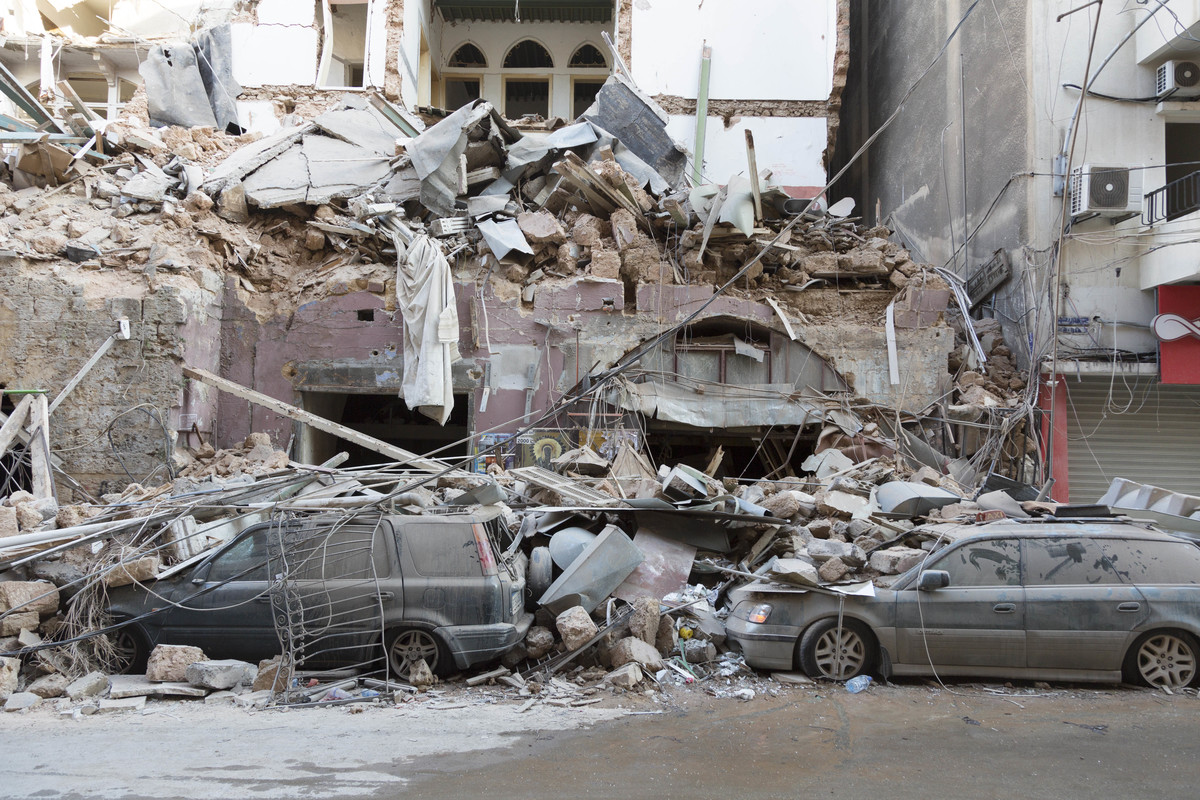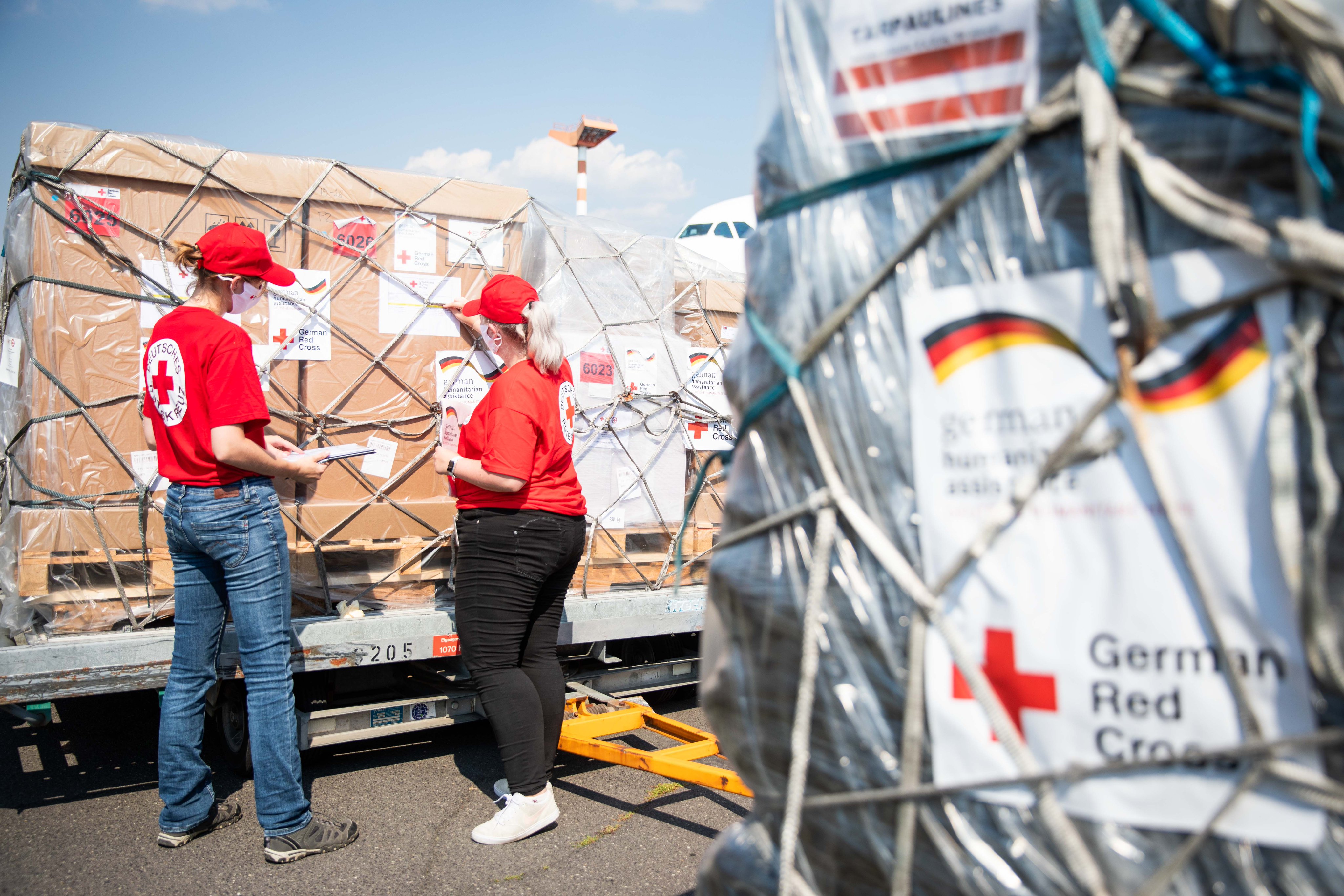A triple emergency in Lebanon: the Beirut explosion, COVID-19 and an economic crisis
Lebanon is mourning the victims of the explosion that devastated the port of Beirut on 4 August, with first responders rushing to assist survivors in the midst of a deteriorating humanitarian situation.
“I see no sign of our Red Cross teams on the ground stopping as they work around the clock to help people suffering from a now triple-layered emergency of economic crisis, COVID-19 and massive explosion,” stated Hossam Elsharkawi, Regional Director of the International Federation of Red Cross and Red Crescent Societies (IFRC) for the Middle East and North Africa.
At least 200 people got killed by the incident and more than 6,000 were injured, which is putting the already weakened health system and social services under further strain. In addition, the blast rippled through several neighbourhoods, causing significant damage to structures in the nearby downtown area. Over 300,000 individuals have been displaced from their homes and need urgent support. The international community has released emergency funding and support, but aid organisations are overstretched. More assistance is required to help everyone in need despite ongoing relief efforts.
In Beirut, the Lebanese Red Cross has helped over 23,700 people affected by the disaster. Emergency Medical Teams and its country-wide fleet of 125 ambulances were swiftly deployed to the explosion site, rescuing the injured and managing first aid at triage stations. They have been working around the clock to evacuate patients from collapsed hospitals, initiate emergency blood transfusions and distribute food, water, hygiene kits, mattresses, masks, gloves and other essential relief items to survivors. They are currently providing emergency shelter for 1,000 families, aiming to ensure temporary housing for as many as 10,000 in the coming weeks and months. Not all wounds are visible, so trained volunteers and staff are also offering psychosocial support to those in need, and helping to put separated family members and friends back in touch through Restoring Family Links services.

National Red Cross Societies from Europe have joined global efforts to provide urgently needed relief, including through direct shipments and assistance on the ground. Here are some examples of their latest endeavours, in addition to fundraising:
- The German Red Cross sent 43 tonnes of relief items to Beirut on 8 August with support from the German Federal Foreign Office (GFFO) – a humanitarian cargo roughly equivalent to the load of six large trucks with trailer – with first aid kits, dressing material, blankets, tools to set up emergency shelters, kitchen utensils, buckets, hygiene kits, medical supplies and personal protective equipment against COVID-19. Furthermore, they have been providing technical support for the coordination of needs-based assistance since the immediate aftermath of the explosion. Part of their staff that was already working in the country is now supporting the field emergency team led by the Lebanese Red Cross, to strengthen basic health services, psychosocial support, emergency shelter and activities to prevent the further spread of and respond to COVID-19
- With support from national authorities, the French Red Cross launched two similar deliveries over the last week: a total of 8 tonnes of relief items including personal protection equipment against COVID-19 and electric generators. Their delegation in Beirut, located just 700 metres away from the explosion site, is also reinforcing the field emergency team: from distribution of food and hygiene kits to mobile clinics, shelter and the repair of damaged ambulances. One of their delegates in the city, a Water, Sanitation and Hygiene (WASH) specialist, highlighted that in the minutes following the blast “people carried the injured on their backs, their mopeds, they came down with first aid kits to clean wounds. Seeing that distress and solidarity is both heart-breaking and magnificent: the worst and hope, together side by side.
- The Netherlands Red Cross is also providing programme support to the Lebanese Red Cross through its delegation in Beirut. Moreover, they will be offering their assistance to get an overview of damage caused by the blast through 510, an initiative which is named in reference to the surface area of the Earth in million square kilometres, seeking to improve the speed, quality and cost-effectiveness of aid by using data and digital tools such as mapping.
- The Spanish Red Cross is reinforcing field operations to tackle the urgent needs in health centers and mobile units through primary care for the injured, the purchase of equipment and the provision of disinfectant material and medical supplies. A rapid needs assessment carried out by the Lebanese Red Cross revealed that many of the wounded will need crutches or wheelchairs to move around in the future, which has also become a priority to address.
COVID-19 is aggravating the situation, with a tenfold increase in the number of confirmed cases over the last weeks: from around 30 per day at the beginning of July to nearly 300 at the moment. The country has registered more than 9,000 cases since the onset of the pandemic, including over 100 deaths linked to the virus. In parallel, major economic and financial difficulties have triggered a substantial rise of prices, unemployment, food insecurity and the closure of many businesses this year. Civil unrest is growing, and on 10 August the central government announced its resignation.
Short and long-term humanitarian needs remain large. At the online donor conference co-organised by France and the United Nations on 9 August, different governments pledged EUR 253 million that will be “directly delivered to the Lebanese population with utmost efficiency and transparency,” through aid organisations. The European Commission has committed a total of EUR 63 million, and countries such as France, Denmark, Germany, Spain, the Netherlands, the United Kingdom and Norway have promised extra funding and/or in-kind assistance including reconstruction material.

The International Red Cross and Red Crescent Movement participated at the event through the President of the International Committee of the Red Cross (ICRC), Peter Maurer, who indicated that the Movement “projects expenditure at an additional EUR 40 million for immediate response through the end of this year.” For that purpose, on the same day the International Federation of Red Cross and Red Crescent Societies (IFRC) launched a global appeal for EUR 18.5 million to rapidly scale up emergency medical care and livelihood support through the Lebanese Red Cross. Meanwhile, National Red Cross Societies in Europe and beyond continue raising funds through similar endeavours.
“In this terrible situation, Lebanese people have showed as usual great strength and resilience, being ready to help each other,” underlined IFRC President Francesco Rocca. Now, time is of the essence to ensure humanitarian assistance can reach the most vulnerable at the shortest possible delay, and to mobilise enough resources to meet the basic needs of people affected by the explosion while striving to curb the spread of COVID-19 – amid political, social and economic turmoil.
© Homepage photo: Nabil Mounzer/EPA
- Press release by the International Federation of Red Cross and Red Crescent Societies (IFRC) on the situation global appeal for funding on this link
- First-hand account by Jeremy Smith, British Red Cross delegate based in Beirut, here:
“Trees in my street were ripped from the ground and whole portions of buildings near the epicentre are missing. I had popped down to the shops to get some things for dinner and was driving when it happened.My car was between two tall buildings and glass, metal bars, and debris were falling all around. One smashed through the driver side window as I was sheltering in the car. The dust made the whole street almost black and all you could hear were screams and the sound of cascading glass and falling metal.”
For media inquiries, please contact Eva Oyón on: eva.oyon@redcross.eu or +32 2 235 09 22

